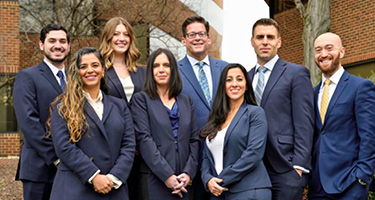Top 10 Things to Know About Adoption Before Starting the Process
Adoption is a complex and emotional process that can be both rewarding and challenging. Before embarking on this journey, it is important to have a thorough understanding of what adoption entails and the potential impact it can have on the lives of everyone involved. With so many factors to consider, it can be overwhelming to know where to start.
Here are the top 10 things to know about adoption before starting the process. Whether you are considering domestic or international adoption, agency or private adoption, these key points will help you make informed decisions and prepare for this life-changing experience.:
How to Start the Adoption Process
Starting the adoption process can vary depending on the specific type of adoption you are pursuing. However, there are some general steps that most individuals will need to follow. The first step is to research and decide on the type of adoption that is best for you and your family. This can include:
- International adoption
- Domestic adoption
- Foster care adoption
- Private adoption
Once you have made this decision, you will need to find an adoption agency or adoption attorney who can guide you through the process. They will help you fill out the necessary paperwork, complete home studies and provide guidance on the legal requirements for adoption in your state or country.
Adopting parents will need to undergo background checks, provide references and attend adoption classes or workshops. It is important to remember that the adoption process can be lengthy and emotionally challenging, but with the right support and guidance, it can also be a truly rewarding experience.
Steps in the Adoption Process
The adoption process may vary, depending on many different factors, but generally speaking, the steps will include:
- Choosing an adoption agency or adoption attorney to guide you through the process.
- Completing an application and providing the necessary documentation and references.
- Attending adoption classes or workshops and undergoing any required training or education.
- Undergoing a home study evaluation, which typically includes an in-home visit from a social worker or agency representative.
- Waiting for a match with a birth parent or child, depending on the type of adoption.
- Completing any necessary legal paperwork and finalizing the adoption in court.
How Long is the Adoption Process
The length of the adoption process can vary greatly depending on many factors, such as the type of adoption you're pursuing, the wait time for available children and the country you're adopting from. Generally, the adoption process can take anywhere from a few months to several years. The wait time for adoption can be frustrating, but it's important to be patient and understand that the adoption process takes time.
In cases where parental rights have been terminated, the adoption process can be shorter. However, this can also be a complex legal process that requires the expertise of an experienced adoption attorney.
Adoption Agency
Choosing the right adoption agency is crucial to a successful adoption. Be sure to look for an agency that has a good reputation, experienced staff and offers support for both prospective adoptive parents and birth families. With that, prospective adoptive parents must meet certain criteria, including age, income and health requirements. It's important to research these requirements before starting the adoption process.
Open to Adopting
There are many types of adoption, including open adoption, where birth parents and adoptive families maintain contact after the adoption. Consider whether you are open to this type of adoption before beginning the process. Also, being open to adopting an older child rather than adopting a baby will often be a far faster and easier process.
International Adoptions
The international adoption process involves additional steps, such as complying with the Hague Adoption Convention and working with the Citizenship and Immigration Services. Research the process thoroughly before pursuing international adoption into the United States.
Post-Placement Support
After the adoption is finalized, it's important to have support in place for both the adopting family and the birth family. Look for support groups and resources that can help everyone involved in the adoption process.
Adoption law also addresses the adoption process after the termination of parental rights. In cases where parental rights have been terminated due to abuse, neglect or other reasons, the child may become eligible for adoption. The adoption process after termination of parental rights can be shorter than other types of adoption, but it also involves a complex legal process that requires the expertise of an experienced adoption attorney.
In addition, birth parents may have the right to contest the termination of their parental rights, which can further complicate the adoption process. It's important for all parties involved to understand their legal rights and responsibilities in these situations and to work with qualified professionals to ensure that the adoption process is handled with care and compassion.
By understanding these important factors, you can be better prepared to navigate the adoption process and find the right adoption opportunity for your family.
































